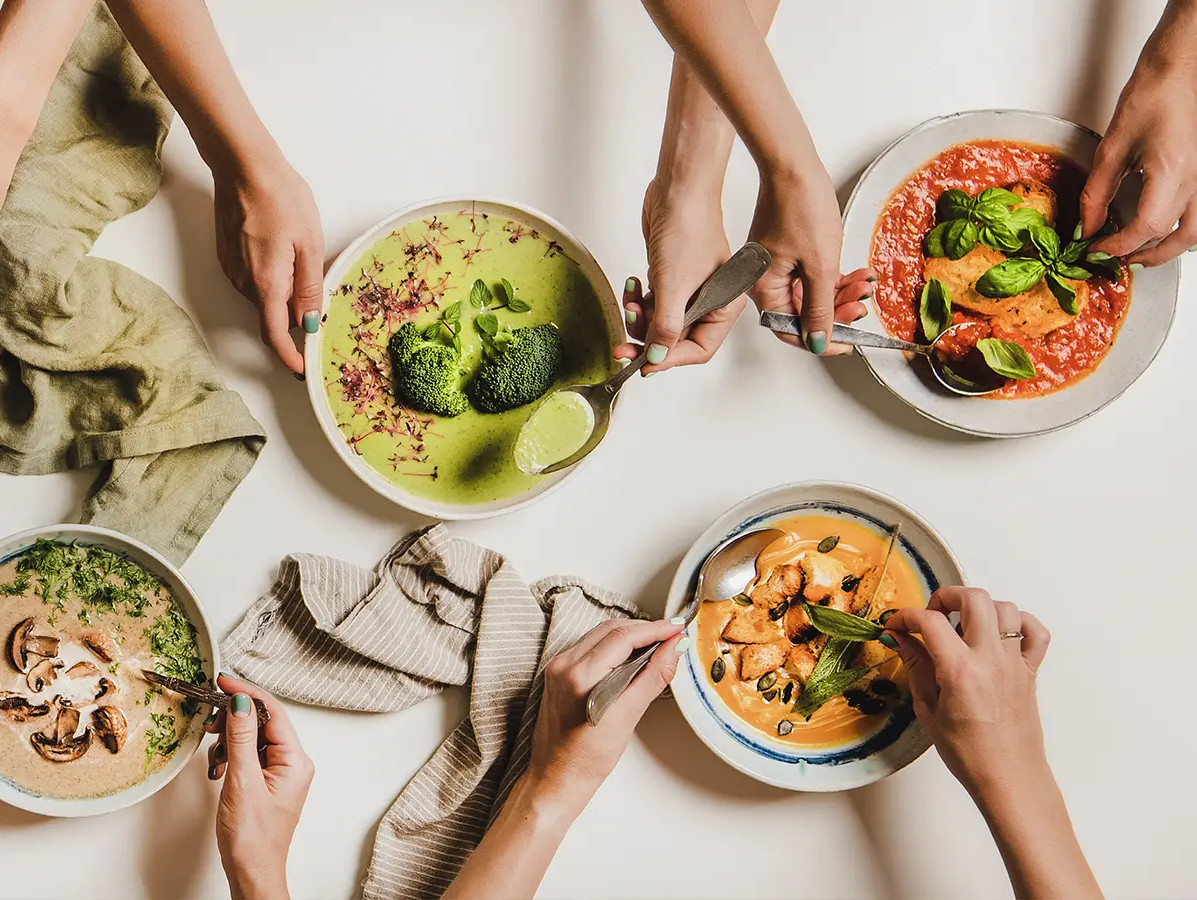
People who regularly share meals with vegetarians tend to eat less meat themselves. That’s the conclusion drawn from an analysis by assistant professor Kristina Thompson (Health & Society, Wageningen University & Research). She believes social networks play a key role in shaping our dietary choices.
“People tend to mirror the eating habits of their social circle, with romantic partners having the strongest influence,” Thompson explains. This effect works both ways: those who often eat with vegetarians are more likely to choose plant-based meals. But the reverse also applies—surrounding yourself with meat eaters can lead to eating more meat.
The effect is most visible among people who eat together regularly, such as students or couples. That helps explain why a partner’s behaviour is so influential.
For her analysis, Thompson used data from 60,639 participants in the Lifelines cohort, a long-term study on healthy ageing. She focused on individuals whose dietary patterns were recorded at two different points in time and who had at least one family member with matching data.
If someone’s close contact ate vegetarian meals at both points, the odds of them remaining vegetarian were twice as high. If their contact was omnivorous on both occasions, those odds were cut in half.
Thompson stresses the importance of backing up assumptions with solid research. Earlier studies into the impact of social networks often came from advocacy groups with limited datasets. “The Lifelines cohort is objective and offers a representative picture of the average Dutch citizen,” she says. Her department is now investigating which types of social network interventions are most effective.
“You may have more influence on others through your own healthy eating than you realise.”
Source: Wageningen Resource